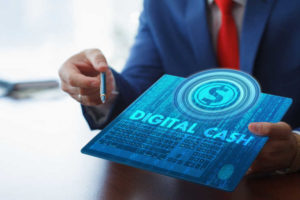UPDATE 9.19.22: At FEE, Brad Polumbo explains the dangers of a cashless society, writing:
Of course, if a “digital dollar” was just kinda useless, that wouldn’t be the end of the world. But it’s much worse than that. While a central bank digital currency would offer none of the benefits of Bitcoin, it would offer governments new, unprecedented ways to control citizens. To call the idea rife for abuse is an extreme understatement.
After all, a central bank digital currency would allow the government to track your every purchase. It could also be easily used to restrict purchases.
For example, imagine a future government deciding that gasoline must be rationed in order to address climate change. Your “digital dollars” could be made to stop working at the gas pump once you’ve purchased a certain amount of gasoline in a week. In this way, a central bank digital currency would open up new avenues for the government to assert control over our everyday lives. It would make our wealth and incomes less truly our own.
If any of this sounds extreme, fantastical, or otherwise far-fetched… well, just look at China.
So, when the Biden administration publishes its report and advocates for the creation of a digital dollar, the public shouldn’t treat the idea merely with intrigue or disinterest. We need to speak out and oppose this idea—or we may well live to regret it.
Originally posted on August 18, 2017.
Is your money safe in a cashless society? Hackers seem to always stay one step ahead of those trying to track them down. Do you want the entirety of your wealth forced online into the domain of cyber criminals? In the video below, Martin Wolf from the Financial Times explains some problems with the idea of eliminating cash.





